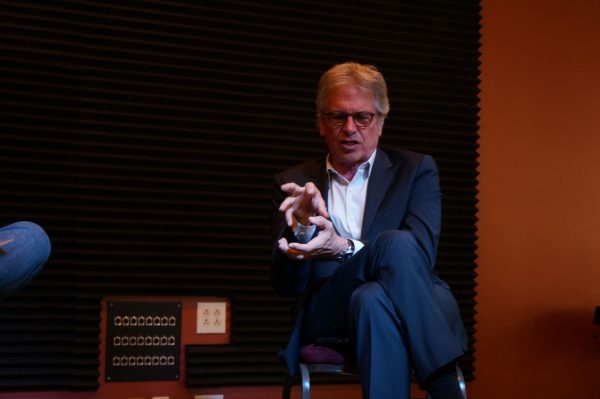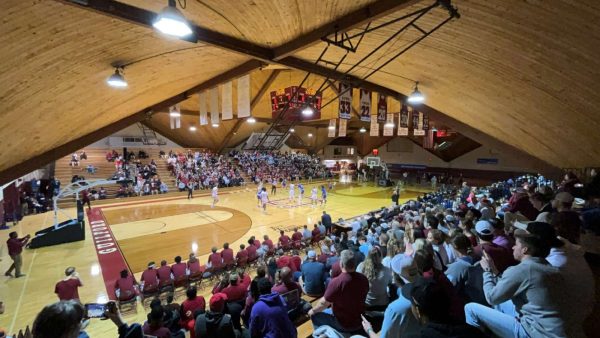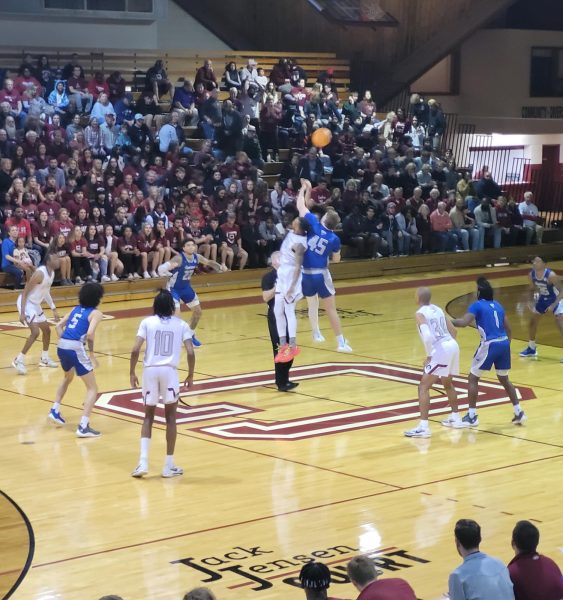New Guilford policies cause insurance headache for students
Out-of-state Guilford College students have recently revealed the struggles some of them face in getting medical insurance in North Carolina.
Many college students are insured through their parents, their jobs or government assistance. However, students from out of state may not find medical care in North Carolina that is covered by insurance they have in their home state.
This puts students in a bad financial position as Guilford College requires students to submit proof of insurance. Not only are they unable to receive necessary medical care but they also have to find a new insurance plan that contracts with in-state providers.
In April of this year, Guilford College made a change to its policy which removed Guilford from the insurance process. According to Dean of Students Steve Mencarini, the College had previously been the “in-between person” between students and health insurance. He explained that the College’s position in the insurance process was inefficient and stressful for both students and faculty.
The advancement of the healthcare insurance marketplace now provides a much larger variety of plans and cheaper options than Guilford previously offered. Mencarini said that this change was “a long time coming.”
However, for students with scholarships, like those who participate in the Bonner Scholars Program, this policy was not such a blessing. Jess Castaneda, a senior majoring in community and justice studies with a double minor in psychology and criminal justice, is a Bonner scholar from San Francisco whose tuition is mostly covered. They expressed frustration over the new policy because they now have to find insurance outside of Guilford College.
Castaneda has Medi-Cal back home in California, and, as someone with type one diabetes, insulin is a necessity for them.
“I have never felt healthy a day in my life,” Castaneda said,
However, they can’t get that insulin without an endocrinologist to prescribe it. With only a few weeks of insulin left, Castaneda will need to find an alternative insurance plan soon.
Castaneda was told to enroll in one of the cheaper insurance plans addressed by Mencarini. However, they emphasized that those plans are for “able-bodied people” and that the equipment they need for their diabetes is often not covered in these “cheaper” plans. Castaneda also applied to N.C. Medicaid, but was told they only qualify for marketplace insurance. According to Castaneda, this insurance is “up to $300 a month,” making it unaffordable.
Mencarini also addressed the struggles college students have in getting Medicaid, describing it as a very cumbersome process.
Ella Barton-Bieglesen, a first-year psychology major, said that her insurance, provided by her parents in Maryland, did not cover a doctor’s visit for a back injury or to receive the flu shot—even though Barton-Bieglesen went to the Eagle Physicians clinic, which is supposed to provide certain free services to Guilford College students, including treatment for sprains/back pain.
“I’m just waiting (to get the flu shot) until I go home,” Barton-Bieglesen said.
While some students like Barton-Bieglesen are able to work around the issue of insurance coverage, it is an unnecessary inconvenience and delay in medical care.
Guilford students struggling with healthcare insurance think that the College needs to provide students with better access to resources. For example, there could be a representative or advisor who focused on the individual needs of students, rather than attempting to sell one insurance policy to all students as a one-size-fits-all plan. Both Barton-Bieglesen and Castaneda stressed the need for more clarity and information for students.
Considering the diversity of Guiilford’s student body, students felt that the College should take into consideration that many students come from economic backgrounds that make affording medical insurance difficult. Students think that Guilford should especially consider students with specific needs that are mostly not covered by cheap insurance or by the Eagle Physicians clinic that is free to Guilford students.
While this issue may seem specific to Guilford College, the heart of the problem lies in the American healthcare system. For years there has been talk about expanding the N.C. Medicaid program, but there has been little to no change. Without insurance, medications like insulin, which only costs a couple of dollars to manufacture, sell for hundreds of dollars. Whether the problem stems from capitalism or an inefficient healthcare system, the ones at the bottom of the social and economic ladder are the ones who pay for it.
As Castaneda said, the system is “leaving a lot of low income people in the dust.”











